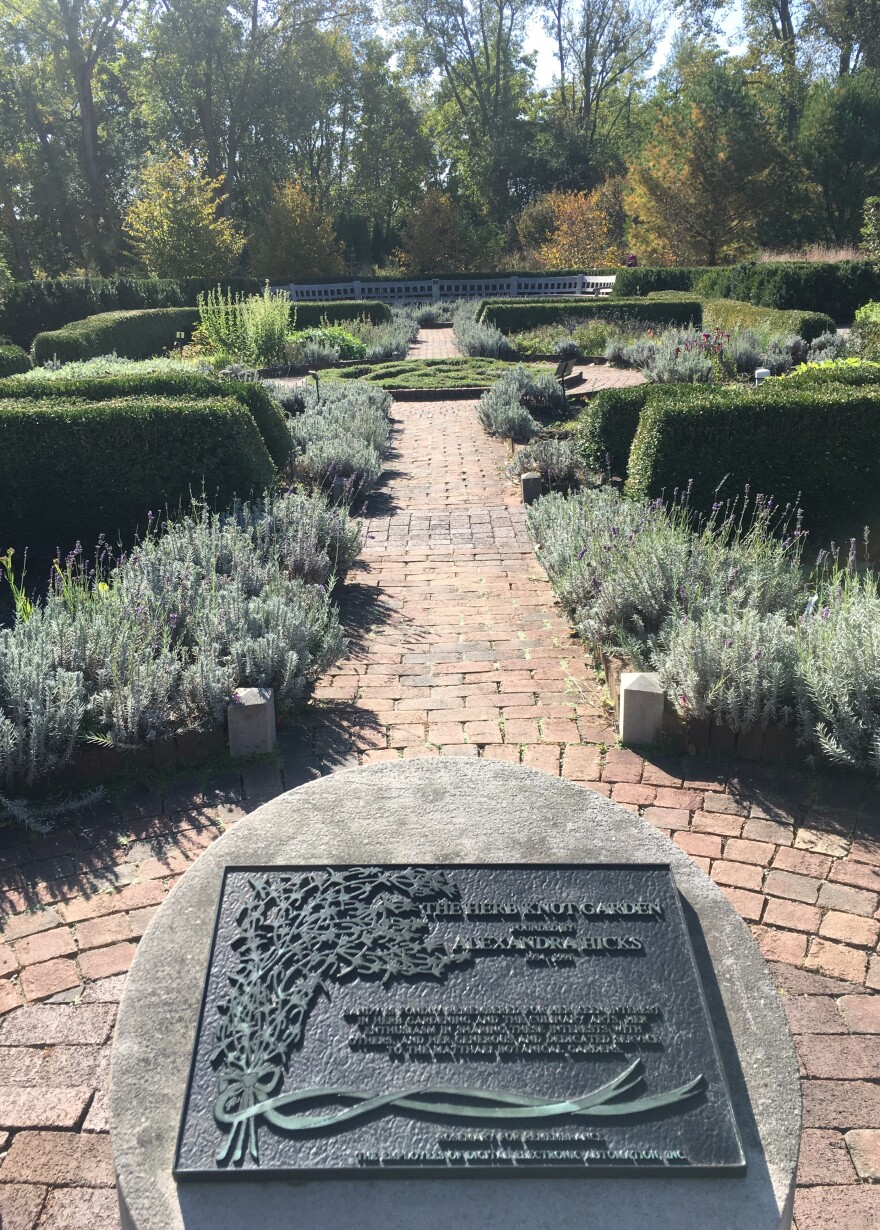Most of us are familiar with the term “from farm to table” when it comes to eating fresh food. But are you familiar with “from garden to pharmacy,” when it comes to some of the medications you take?
89.1 WEMU’s Lisa Barry takes you to an Ann Arbor garden, where a variety of plants are grown to be used in research and to demonstrate what some medications are made from...hidden in plain sight.

Lots of prescribed medications are derived from plants, many of which are being grown in the “Medicinal Garden” part of the University of Michigan’s Matthaei Botanical Garden off Dixboro Road.
Dr. David Michener is curator of the University of Michigan Matthaei Botanical Gardens and Nichols Arboretum.
"So, we created this garden because our perception is that most people in the public don't understand what a large part of the modern medical tradition is coming straight out of plants."

Dr. Michener walks me through the garden on a brisk fall morning, where, unlike typical gardens, the medicinal garden is arranged by human health issue rather than by horticultural needs of the plants. He is quick to point out that this is NOT a “display garden” to see beautiful blooms or blossoms.
"I've been to numerous medicinal gardens, including traditional ones in the United States, Europe, and China, and there is not one that anyone would ever accuse of being pretty, because they are about ideas about what's inside the plant."

Relatively new to the University of Michigan is someone exploring those ideas. Dr. Roland Kersten is an assistant professor of medicinal chemistry at the College of Pharmacy at the University of Michigan. He came to Ann Arbor just a few months ago from MIT where he was doing biomedical research.
We talked inside the conservatory near the medicinal garden at Matthaei Nichols, where he says he wants to conduct research on plants as a source of new chemicals to treat diseases.
"Obviously, medicinal plants are a good source to start finding new molecules to cure diseases, such as cancer, or ameliorate pain."
With the colder weather now upon us, he has collected hundreds of samples from plants in the medicinal garden and will be screening those throughout the winter. In his University of Michigan lab, Dr. Kersten will be biosynthesizing the compounds looking for new chemicals to be used as mainstream medications or disease cures.
"Actually, when I got here it was still summer, so I collected leaves and flower tissues, like small quantities that I can now analyze in my chemical lab for compounds that might have medicinal properties."
He explains how he processes plants to look for disease fighting chemicals.
"Basically, it's like if you have a spice or a seed in your kitchen, and you put it in a mortar and use a pestle to grind it up, that's pretty much what I'm doing in my lab or have been doing the past couple of years in Boston. It's pretty much the same thing if you are preparing food a lot of grinding, a lot of chopping."

While research into drugs derived from plants takes place inside the university laboratory, volunteers like Valarie Bates of Dexter, who is a master gardener, works outside in the garden--something she has been doing for several years. She says she is always learning about how plants are used in medications.
"When you talk about looking at medicine and how our plants provide medicines, that's exactly what we need to look into. There's something new that you learn every year about things you didn't know, and it may not come from our nation, but it may come from another nation as all of us learn from one another."
As medical research continues and improvements are made in curing diseases, scientists will continue to look at nature as a solution to medical problems. Dr. Kersten will spend the coming colder months inside his U of M lab going over the samples from plants he gathered outside from the medicinal garden at Matthaei Nichols.
"I think there is a lot of potential to find new drugs from plants."

A garden that is run by the University of Michigan and opened just a few years ago…hidden in plain sight.
Non-commercial, fact based reporting is made possible by your financial support. Make your donation to WEMU today to keep your community NPR station thriving.
Like 89.1 WEMU on Facebook and follow us on Twitter
— Lisa Barry is the host of All Things Considered on WEMU. You can contact Lisa at 734.487.3363, on Twitter @LisaWEMU, or email her at lbarryma@emich.edu






